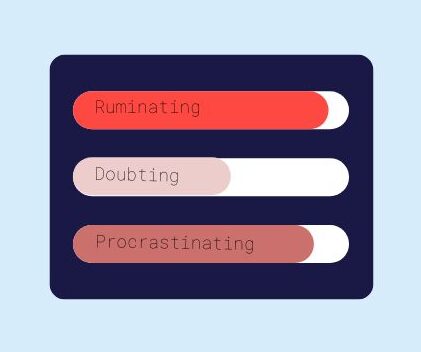Over the last thirty years Cognitive Behavioral Therapy (CBT) has demonstrated its effectiveness in the treatment of all anxiety disorders including specific phobia, social phobia, obsessive-compulsive disorder, post-traumatic stress disorder, & generalized anxiety disorder (Norton & Price, 2007; Tolin, 2010).
Under the premises that each one of these disorders is caused and maintained by different variables a different treatment protocol was developed for each one of them. Although this approach was relatively effective we’re currently facing a number of clinical dilemmas such as having: (1) a “plethora of treatment protocols for anxiety” (Barlow, 2008); (2) a significant percentage of individuals that do not respond to CBT treatments (Barlow, Gorman, Shear, & Woods, 2000); (3) a high comorbidity among anxiety disorders (Kessler, et. al. 1994), and (4) the fact that “… anxiety disorders [still] affect 40 million adults in the United states age 18 and older” (ADAA, 2012).
Given the above data and in an attempt to better understand anxiety disorders and its roots, recent empirical studies have indicated there is actually more commonalities than differences across anxiety disorders. In particular, experiential avoidance has been identified as a core psychological process which plays a role in the development and maintenance of all anxiety disorders.
Experiential avoidance refers to an individual’s attempts and efforts to avoid, suppress, or otherwise alter the form of negatively evaluated private events such as bodily sensations, emotions, thoughts, worries, and memories (Hayes, Wilson, Gifford, Follete, & Strosahl, 1996). For instance, clients with a specific driving phobia are avoiding not necessarily “driving” per se but the experience of thoughts, emotions, and physical sensations associated with driving.
Therefore, there is a strong clinical argument and available data for the delivery of a unified treatment for all anxiety disorders allowing clinicians to be more effective in the therapy room while simultaneously helping clients to target multiple anxiety problems that are significantly affecting the quality of their life (Ehrenreich-May & Bilek, 2011; Ehrenreich, Goldstein, Wright, & Barlow, 2009; Barlow, 2008; Eifert & Forsyth, 2005).
Building upon these concepts and in the spirit of practicing cutting-edge clinical psychology in our work we’re currently offering a time-limited group anxiety treatment for adult clients integrating two major empirically-supported interventions such as Exposure Therapy and Acceptance and Commitment Therapy (ACT) directly targeting experiential avoidance (a driver of all anxiety disorders). For more information about the Values-based Exposure group for Anxiety click here.
References:
Arch, J. J., & Craske, M. G. (2008). Acceptance and commitment therapy and cognitive behavioral therapy for anxiety disorders: Different treatments, similar mechanisms? Clinical Psychology: Science & Practice, 5, 263-279.
Barlow, D.H. (2008). Clinical handbook of Psychological Disorders. New York, NY: Guilford Press.
Eifer, G. & Forsyth, J. (2005). Acceptance and Commitment Therapy for Anxieyt Disorders. Oakland, CA: New Harbinger.
Ehrenreich, J.T., Goldstein, C.R., Wright, L.R., & Barlow, D.H. (2009). Development of a unified protocol for the treatment of emotional disorders in youth. Child & Family Behavior Therapy, 31(1), 20-37.







